Carlisle Cricket Club Roman bath dig with 'significant finds' to resume
- Published
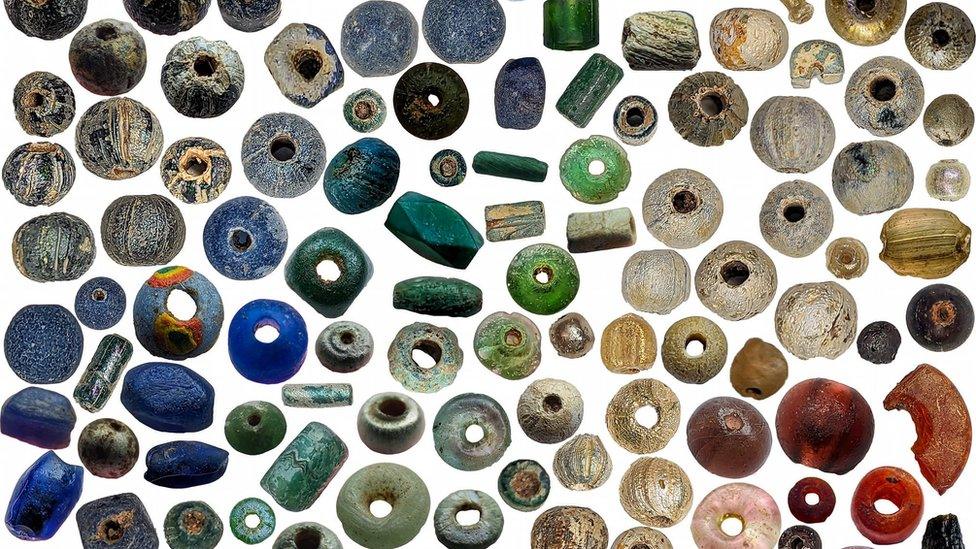
More than 200 beads have been found at the Carlisle Cricket Club site
The excavation of a Roman bath house in Cumbria which has already unearthed "significant finds" is to resume in October ahead of a larger dig in 2024.
More than 1,000 objects have been found at the dig at at Carlisle Cricket Club.
Two "priceless" Roman god heads and 2,000-year-old gems have been among artefacts discovered by volunteers since 2021.
Archaeologist Frank Giecco, who is leading the project, said test trenches would identify where to dig next.
"We don't want to turn up in May 2024, open up a big area and find nothing," he said.
Members of the dig team want to find the location of the south-west corner of the bathhouse and look for remains of buildings and shops to the south side of the adjacent road.
They will also look for evidence showing where the River Eden ran in Roman times - and whether it was navigable.
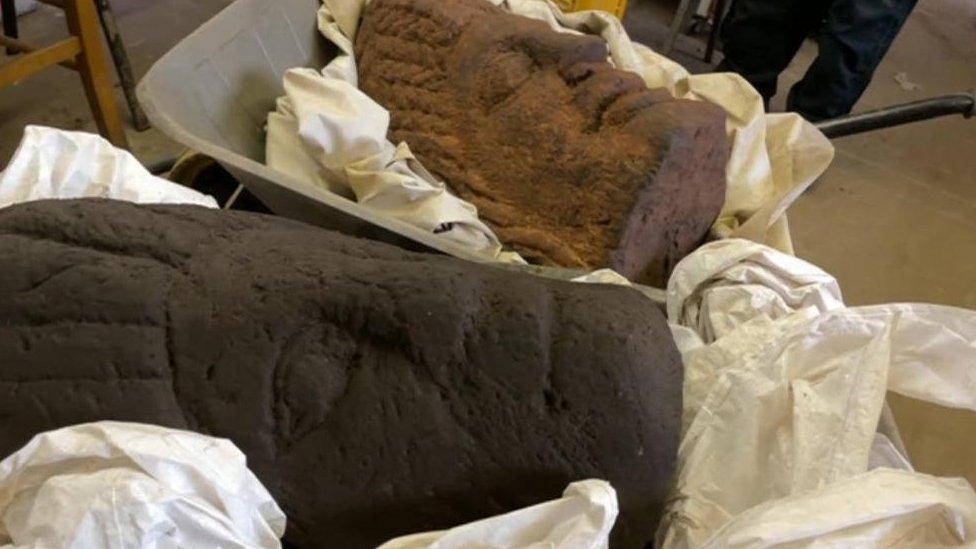
The well-preserved god heads unearthed are said to be "rare and priceless"
"We've got walls extending in every direction currently, so we can't get a size or definitive plan of what the building looks like," Mr Giecco said.
He added that the site had trees on one side and a road on the other, but the team was otherwise free to dig where they liked - apart from the actual cricket pitch.
"The cricket club are just brilliantly supportive, so they've given us free rein."
Nick Henderson, from the Hadrian's Wall Project, who has also been involved in the dig, said hundreds of volunteers and school children had helped.
Almost all said they would help again and many had gone on to work in the fields of archaeology or heritage, he said.
Mr Giecco, from consultancy firm Wardell Armstrong, said the group now had 1,300 members, which he had not expected.
"There's quite a big community behind it. It's not just the dig, it's the group that's taken on a life of its own," he said.
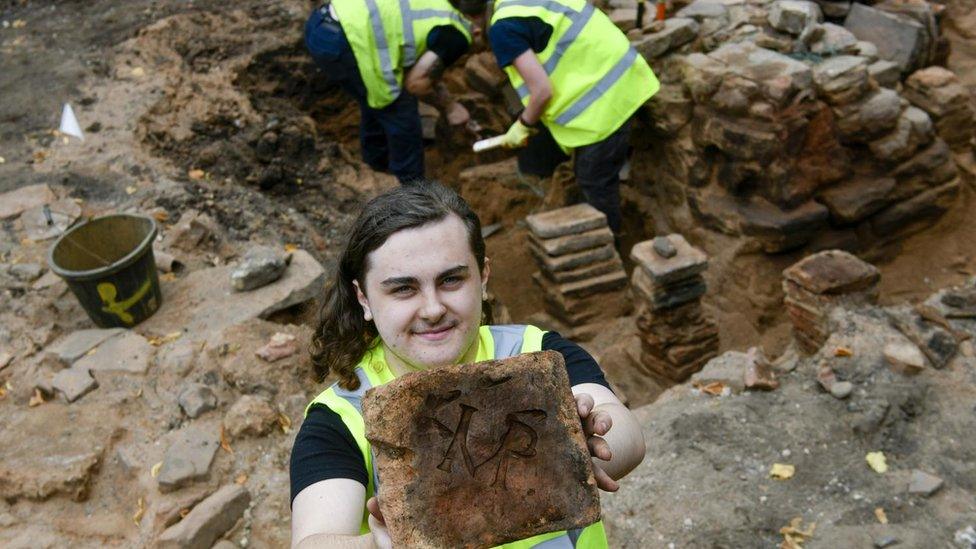
Volunteers are again needed to take part in the excavation
"It's incredible, but it's exhausting as well," Mr Giecco said.
"Keeping a project like this going in between my day job, which is commercial archaeology, it's a lot of balls to keep juggling.
"But, when you're there, it just takes over. You live and breathe it six days a week."
After the excavation, everything needed to be "cleaned, washed, measured, quantified, boxed up, looked at by specialists", Mr Giecco added.
The volunteers have been recording their finds on a Facebook page, external.
In the future, the pieces could be housed in a museum behind the club's new pavilion.

Follow BBC North East & Cumbria on Twitter, external, Facebook, external and Instagram, external. Send your story ideas to northeastandcumbria@bbc.co.uk, external.
Related topics
- Published1 July 2023
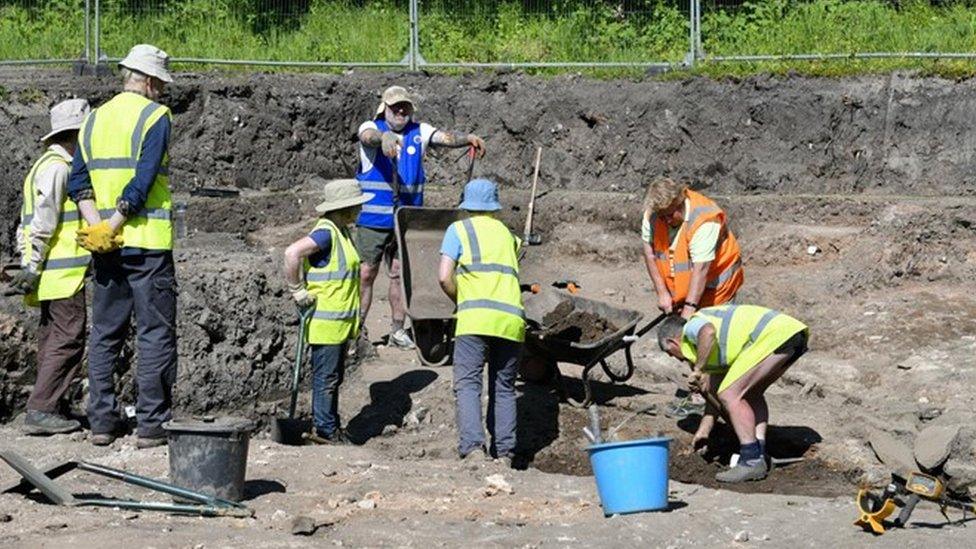
- Published24 May 2023
- Published26 April 2023
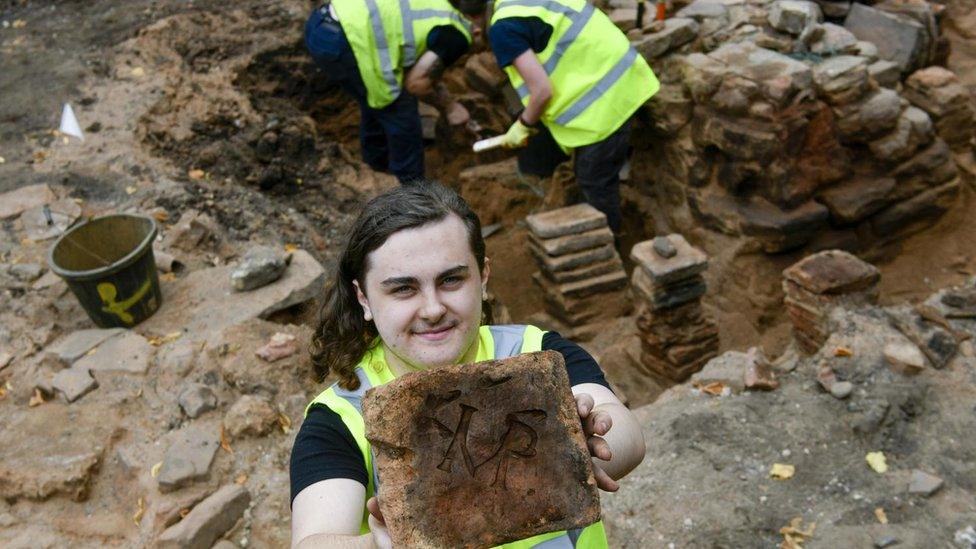
- Published31 January 2023
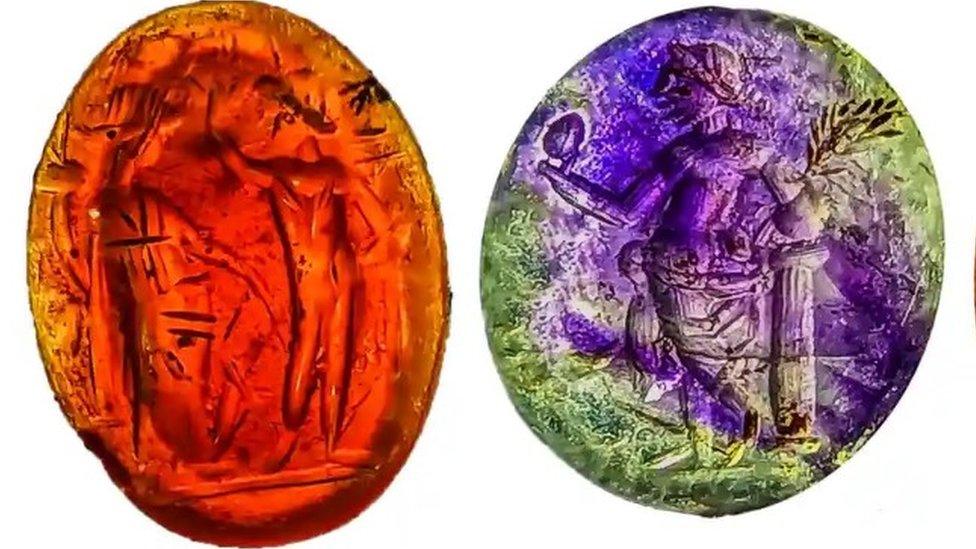
- Published6 August 2021
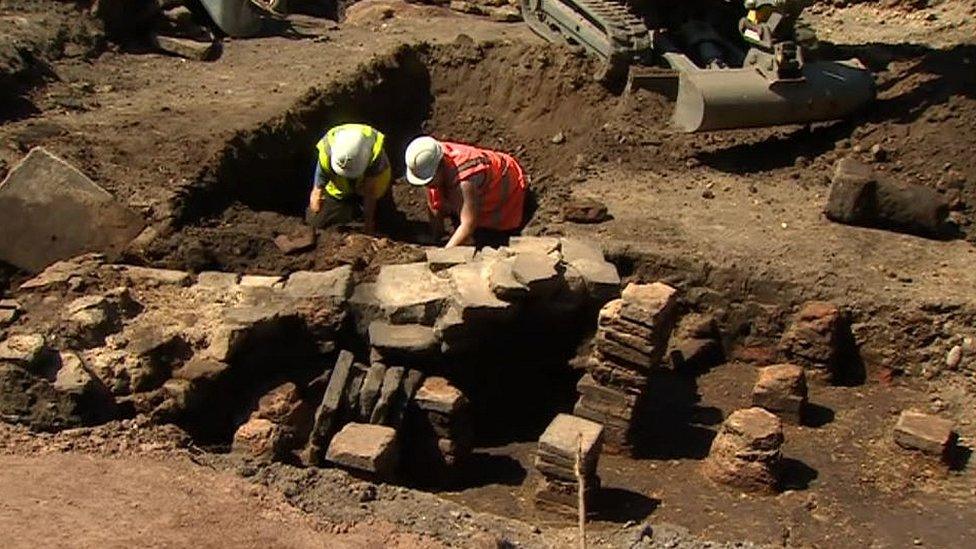
- Published28 May 2017
